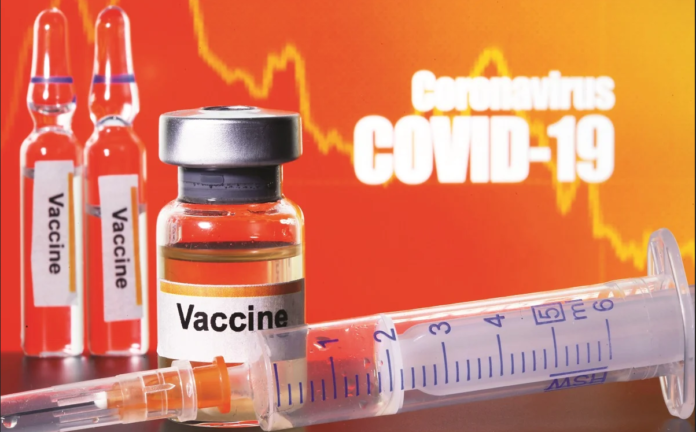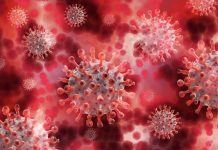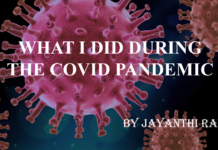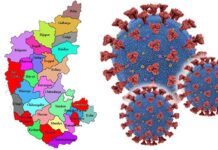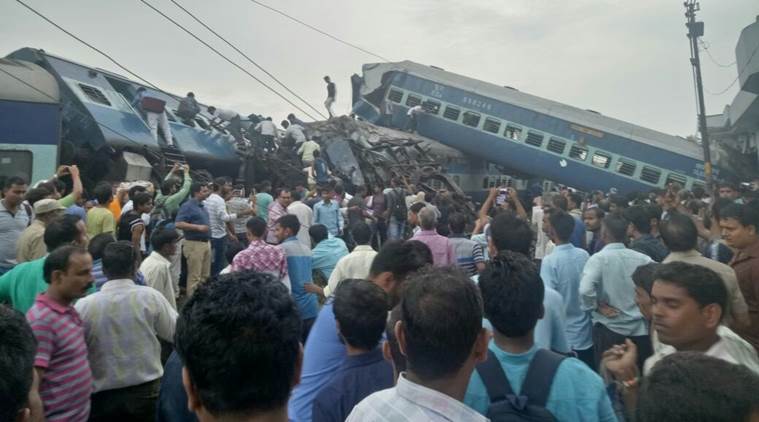Along with the increasing data of infection with the corona virus, the discussion of covid vaccine is also increasing in India.
Will everyone get a vaccine in a country with a population of over one billion? The concern is being raised about this question and the challenges coming in the vaccination campaign.
However, currently a information given by the government has sparked a new discussion.
On Tuesday, Secretary of the Health Ministry, Rajesh Bhushan said during a press conference that the government has never talked about vaccination of the entire country. Vaccination will be done for a limited population.
Further clarifying the statement of Rajesh Bhushan, Dr Balram Bhargava, Director General of the Indian Council of Medical Research (ICMR), said that the aim of the government is to break the transmission chain of the virus.
Corona vaccine
Doctor Balaram Bhargava said, “If we are able to prevent corona infection by applying the vaccine to the section of the population which is more susceptible to corona, then the whole population may not have to apply the vaccine.”
Earlier it was being speculated that the entire population would be included in the government’s vaccination campaign.
But now it is clear that the government is not going to give vaccine to the entire population at the moment.
But even after this, many questions remain. For example, how can an infection be prevented by giving a vaccine to a specific group of the population, how effective can this method be and why is it needed?
Vaccination strategy
Regarding this, public policy and health system expert Dr Chandrakant Laharia says that the decision on how to use the vaccine is taken on two grounds. The first is the availability of the vaccine and the second is its purpose.
Dr. Laharia is also the co-author of ‘Till We Win: India’s Fight Against Kovid-19 Pandemic’. He explains, “We have to first see what the purpose of vaccination is. If a country has a limited amount of vaccine and its objective is to reduce the mortality rate, then it has to choose the population in which deaths are increasing. Like Elderly, people already suffering from any disease and health workers. “
“But, if there is an agar vaccine available and there is a situation that the mortality rate is very low but the infection is spreading very fast. In such a situation, the government can also decide that the mortality rate is low so the infection should be stopped first. If adopted, vaccine is given first to those who are at high risk of getting the infection and from which the infection is spread. “
In its decision too, the government talked about giving vaccine first to those people who are at high risk. These people may include health workers and policemen. Health workers may include not only doctors and nurses but also ward boys, scavengers and ambulance drivers etc.
Limited time and resources
At the same time, delivering the vaccine to all people is also a big challenge. It will require a huge amount of resources from storage to distribution.
It is true that India has very rich experience in vaccination campaigns. India is one of the largest vaccine producers in the world.
Due to the success of immunization campaigns for polio, smallpox and other diseases, India already has a systematic system.
However, the trial has not ended on the vaccine itself at present, and the government has less time, given the level of infection, whereas earlier vaccination campaigns have been conducted for years.
Clinical trials of five vaccine projects are currently underway in India, two of which have been made in India and three abroad.
Apart from this, UK-Sweden pharmaceutical company AstraZeneca and Moderna have said that the vaccine results are better. Britain has also approved the vaccine of American company Pfizer.
How to break the chain of infection
But, the purpose behind giving the vaccine to the most threatened population is to reduce infection
How is this possible? Suranjit Chatterjee, the Senior Consultant Doctor at Indraprastha Apollo Hospital, says that it works in the same way as in herd immunity.
Dr. Suranjeet explains, “As in the herd immunity, a certain percentage of people have become immune to a disease, the infection is reduced. If someone has already had an infection and has become immunized after being cured , Then when he gets corona infection again, that virus will not spread from that person’s body to another. “
“This is about the vaccine. If the vaccine is given to those who are more likely to get infected and spread the infection, then immunity will be generated for the corona virus. They will not become the carriers of the virus further. The chain breaks and it reaches fewer people. “
Vaccination campaigns have run in India before, but such a method was not adopted in them.
Different situations
Doctors describe these situations as different from before. Covid-19 epidemic is different from earlier epidemics. This virus gets infected very quickly. It spread across the world in a few months. In severe cases, it also kills people.
Then the world is more connected now than before. People keep coming from one country to another. In addition, the infection spreads quickly.
Rapid infection of the disease, falling economy, stagnant functioning and political pressure are also the reasons why the disease needs to be controlled as soon as possible.
According to experts, in these circumstances, the vaccine is given on the basis of priority to control the disease as soon as possible. There is agreement on this all over the world.
However, later every country decides according to the effects and needs of the vaccine.
There will be fewer cases
Doctor Suranjit Chatterjee says that the virus will not be completely eliminated in this way but cases of infection will be reduced, which will reduce the burden on health facilities. Then the virus load in those who will be infected may be reduced, they can get better treatment and fear will be less in people also.
He says that given the population of India, it is very difficult to give vaccine to every single person. Therefore, there is a need to find immediate solutions in existing resources. What results will come after this, a further strategy will be formed.
According to Dr. Chandrakant Laharia, the vaccination strategy during and after the epidemic is different. It is believed that this pandemic will end by the end of the year 2021 but in some part the corona virus will still remain. After this, we have to see what method the government adopts.






























